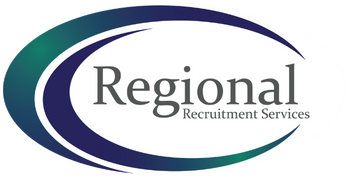Industry Insights: What can we Expect for 2024?
Navigating the dynamic landscape of recruitment in 2024 involves keeping up to date with the ever-evolving industries we recruit in. The fast-paced world of workforce acquisition requires more than just traditional strategies for staying ahead, it demands a keen understanding of industry insights and a proactive approach to adapt to change.
In this blog, we will cover the construction, tech & engineering, industrial, and professional services industries, bringing you the up to date insights into the aftermath of the past year and offering a compelling preview of what lies ahead in 2024.
Overall, 2023 was a year where most industries faced economic challenges. According to the three main concerns reported by businesses at the end of 2023 included: a falling demand of goods and services, energy prices, and inflation of goods and services.
Construction
This leads us on to our first industry, Construction. The industry saw slow economic growth and higher interest rates in 2023 as an effect of developers pausing or scaling back on investments, weak demand has also halted construction activity.
In 2024, we can expect to see a rebound from economic slowdown with a focus on financial stability. The industry may face uncertainty for the coming year, so financial stability is a necessity for navigating economic fluctuations, capitalising on opportunities, and fostering long-term success. We are also expected to see growth in the public sector, with major education investment planned for the industry, following the department of education plans to rebuild hundreds of schools.
A big focus for the next year in the industry is sustainability and technological advancements. These go hand in hand as emerging construction technologies are set to propel the industry towards environmentally friendly practices, this not only reduces the impact of construction on the environment but also creates buildings that are inherently more energy efficient and comfortable. Other technology such as Building Information Modelling (BIM), Augmented reality (AR), and Virtual reality (VR) are just some of the advancements that construction firms, nationwide, are starting to implement. Green building is also being implemented by many construction firms, in an effort to make their processes less harming to the environment.
For more on similar developments in the construction industry please refer to one of our previous blogs.
Click here.
What does this mean for Construction Recruitment?
When prioritising financial stability in an organisation, it has a direct effect on recruitment and hiring decisions. Strategic hiring is needed, where by the firm identifies the positions that directly contribute to financial stability when reviewing potential new hires. Selective recruitment can be used to identify candidates with the right skills, avoiding costly turnover. Emphasis on retention is important too, saving the firm on repeat recruitment and training costs.
With the education investment being a development in the public sector, it introduces a different set of requirements, regulations and considerations. Firms will want to recruit individuals who will understand and comply with public procedure, they may even want people with experience in public contracts. Further requirements will be needed when finding candidates for a role like this, such as an enhanced DBS check.
Due to sustainable practices being on the rise, there is a demand for Green Building experts, this will need to be considered when recruiting for construction companies going forward, more specialised recruitment is needed to meet the needs of sustainable construction practices. Technological advancements may mean firms want to take on tech-savvy individuals, or people who have used construction technologies before, again this means more specialised requirements are put in place for recruiting.
Tech & Engineering
Much like Construction, the Engineering industry is on a digital modernisation going into 2024, the industry posed this as one of their biggest challenges over the last year, implementing digital processes into the workplace requires the workforce to adapt to change.
The demand for engineers and technicians continues to grow in the new year, especially with the industry growing. There is also a demand for engineers who can fill the skills gap, there is still a growing concern in 2024 of the aging workforce and there not enough females in the industry. Filling this skills gap starts in schools, by better educating students about the industry, and promoting career opportunities for getting into the industry, such as apprenticeships.
Net zero presents itself as a challenge for the industry but also an opportunity. The challenges it brings is the implementation of new technology, as previously mentioned, adapting infrastructure is another challenge, as many transport systems, buildings, and industrial facilities where not designed with sustainability in mind. The industry must evolve towards a greener future, meaning they will have to follow policies related to environmental standards and emissions.
The opportunities it can present is room for economic growth, investments into sustainable practices can drive economic growth. It also presents new job opportunities, as a shift towards net-zero goals creates a demand for skilled engineers. Addressing climate change and achieving net zero demands will require global collaboration, this gives UK engineers the opportunity to work on international projects, share expertise, and the chance to contribute to a collective effort for a sustainable future.
What does this mean for Tech & Engineering Recruitment?
Following the technological advancements in the industry, there is now a demand for tech talent. As the industry grows and develops, so does the need for specialised individuals and skilled professionals. As this new demand for tech talent increases, the demand for all engineers in the industry still continues to grow, with there being a prediction for jobs to grow across all UK regions between now and 2030. For recruitment this means there is more competition among companies looking to recruit the same pool of engineer/technician talent. The surge in demand can lead to a talent shortage, recruiters may face challenges finding top talent with the right skill set.
Engineering firms may be looking to take on trainee’s or apprentices to tackle the aging workforce, agencies can not only help by finding candidates, but also by promoting the industry, young people in the industry, and female engineers, on their social media channels. Using these channels as exposure can give the industry a different image, making it more attractive to students, young adults, and females.
With sustainability concerns at the front of many organisations minds, they will be looking to take on individuals who are going to contribute to the growth of the company towards a sustainable future. Corporate Social Responsibility (CSR) can be an attractive factor for candidates seeking an employer who promotes sustainability and social responsibility.
Net-zero challenges will often require innovation from engineers, so recruitment efforts may prioritse individuals who are creative problem-solvers, who have demonstrated they are able think critically about sustainable design and engineering solutions. As technology and methodology evolve, opportunities present themselves, in this case, training and development, candidates who value these opportunities will find the role more attractive.
Industrial
Due to challenging economic conditions in 2023, UK manufacturers are looking to streamline their operations and costs, some manufacturers have started to re-shore their supply chains. Re-shoring is the process of transferring a business operation that was moved overseas, back to the country from which it was originally relocated. Over the next two years, 82% of UK manufacturers intend to accelerate reshoring activities within their supply chain.
Along with the other industries discussed, the industrial industry is no exception to adapting to technological advancements, from the digitalisation of factories to data analytics for risk management, these improvements will help productivity optimization and solving operation inefficiencies. Industrial firms are also under pressure over environmental concerns, as regulations are getting stricter, they are under greater scrutiny to choose more sustainable practices.
The skilled labour shortage is one of the biggest concerns going forward, better education and a change in image needs to happen as there are big misconceptions surrounding the industry, the general perception of the industry is that it is high labour, low-skilled, long hours and low wages, this is highly down to historical stereotypes, and media portrayal.
What does this mean for Industrial Recruitment?
Talent and costs remain the main concern for industrial businesses in 2024, reshoring plans means more talent in the UK is required, along with specialist staff to help with the reshoring process. Recruiters must ensure a substantial pool of talent for the new year and be ready to support companies through the reshoring process.
Agencies may be given more requirements when looking for candidates, such as experience/expertise in using technology, and knowledge of sustainable practices. Finding skilled labour will also be a challenge to recruiters, with there being a shortage. Much like tech & engineering, agencies can help to rebrand the imagine of the industrial industry by promoting the benefits of industrial work on job boards and to candidates, whilst we know we can’t change historical stereotypes, starting to change this perception is only going to promote growth in the industry. Using social platforms to change the image of a misinterpreted industry can also be beneficial in its reach and chance to attract different types of talent.
Professional Services
The Professional Services industry can expect to see the practical use and implementation of Artificial Intelligence (AI), enhancing efficiency, decision making, and client service, whilst fast-tracking processes. AI can help with this in many areas, to name a few, financial forecasting/planning, client relationship management (CRM), data analysis, and many more, companies who adapt and change their processes to fit with new technology stay ahead of the curve.
Also expected in 2024 is an (even more so) personalised customer experience, utilising the data we have from advancing technology we have more insights to demographics, behaviors, preferences and audience types. Businesses will have to find the balance between the convenience and efficiency of using AI (chatbots, automated emails) during customer interactions and using a human touch.
We are likely to see more investment in data security and solutions, which can be beneficial in many ways, planning, estimating, client communication protocol/reporting, along with other aspects. Implementing these solutions not only ensures efficiency but also security when handling data. Companies who acquire a large volume of data about their clients will not only need to input this data into CRM systems, but also will also need to make sure this data is securely stored.
Flexible working is still going to be a focus in the next year, with new regulations being put in place by April 2024. The government has announced that the new flexible working regulations, giving employees the right to request flexible working arrangements from day one of employment, this will come into effect as of 6th April 2024. ‘Flexible working’ refers not only to being able to work from home, although this is included, it can also cover working patterns/hours, including part, flexi, and term-time, compressed hours, and adjusting start and finishing times. Businesses will have to take this into account and adapt their processes to help make this change as smooth as possible, for example they may have to invest in laptops so people can access their work from home.
What does this mean for Professional Services Recruitment?
Without sounding like a broken record, recruitment in the industry will become increasingly specialised, with there being a higher demand for professionals with expertise and experience in using AI. Companies who take on candidates with prior experience using these technologies will have less trouble adapting and training their workforce when implementing new processes.
As a result of this year's flexible working regulations, an expanded talent pool has opened. Recruiters have access to another pool of talent, who may not have been able to commit to a full-time office-based role, due to a reason such as childcare, this betters the chance of companies finding their perfect hire. Flexible working often emphasises outcomes and results over traditional measures of productivity, such as time spent in the office. Recruiters may look for candidates who thrive in results-orientated environments and are self-motivated to deliver on their responsibilities regardless of location or working hours.
If you are looking for a recruitment partner to navigate you through the challenges & opportunities of the coming year, Regional Recruitment Services would be happy to help!
Get in contact...
0116 262 3733
info@regionalrecruitment.com














